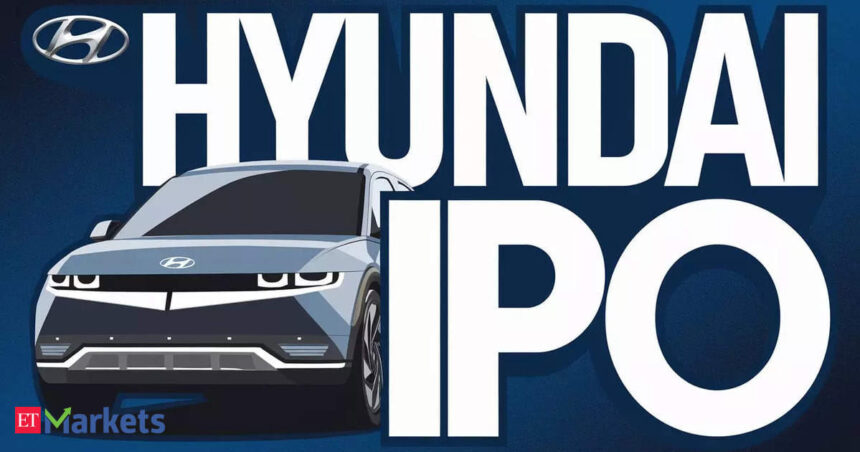Maruti Suzuki, which is currently the market leader with 40% share, is just ahead of Hyundai, the second largest player with 15% market share.
Offering around Rs 27,800 crore, Hyundai’s IPO will be at a premium to Maruti Suzuki. In the price band above Rs 1960, Hyundai is asking for 26x FY25 earnings to Maruti’s 22x FY25.
This price premium for Hyundai is on the back of strong Korean parent support, better models and a rising SUV share compared to Maruti. Analysts say the higher valuation may reflect investors’ expectations of future growth prospects.
The next rivalry between the two top auto players has played out on the SUV front, a segment where Maruti is playing. Hyundai has been a consistent leader in the mid-size SUV sub-segment since FY19.
Consumers in India are increasingly interested in mid-end or top-of-the-line versions of vehicles away from traditional fuel-efficient small vehicles. The share of SUV sales volume in total passenger vehicles increased from 41.1% in FY22 to 53.5%. Currently, Hyundai offers eight models of SUV passenger vehicles in India, across the compact, mid-size and large SUV sub-segments, including one EV models. Meanwhile, Maruti has four SUV models in its lineup. “Hyundai’s premium prices and focus on higher margin segments like SUVs can pressure Maruti’s profitability and market share in certain segments. reshaping the competitive landscape over time,” said Atul Parakh, CEO of Bigul.
However, Maruti’s strong dealer network and affordable prices could continue to operate despite pressure from Hyundai.
“With growing consumer preference for EVs and SUVs, Hyundai’s sophisticated and competitive models will attract more buyers. The company’s strong brand image and loyal customer base, especially in the SUV and premium car markets, can reduce Maruti’s market share and sales.” ,” said Saji John, Senior Research analyst, Geojit Financial Services.
Hyundai’s premium product mix means other automakers may also be forced to innovate and improve their offerings to build investor confidence.
Analysts believe that increased competition may reduce the margins of other incumbents like Mahindra and Mahindra and Tata Motors in the near term.
“Investors can reallocate their portfolios based on Hyundai’s growth potential and value, which can drive down competitors’ share prices,” John said.
Furthermore, Hyundai’s IPO, the first of a major car player in India in more than two decades, could lead to a re-rating of the sector. The IPO will attract significant global investor interest and this infusion of foreign capital could increase the value of the sector.
“We expect a re-rating in the sector with the debut of the IPO. The re-rating will be driven by strategic expansion plans, investments in new technologies and products, and prudent capital allocation,” said Sagar Shetty, Research Analyst, StoxBox.
“Hyundai’s portfolio expansion and manufacturing capabilities highlight the growth potential and investment in the automotive market. Increased competition and innovation driven by Hyundai’s increased financial strength post-IPO can push other automakers to reassess growth potential and market position, positive re-rating on the contrary, if the listing is considered overvalued, it can have a negative impact,” said John.
(Disclaimer: Recommendations, suggestions, ideas and opinions expressed by experts are their own. This does not represent the views of the Economic Times)




